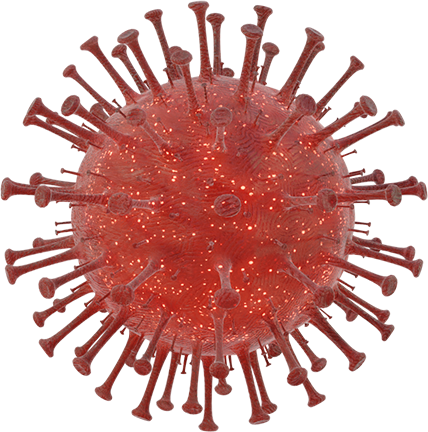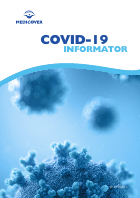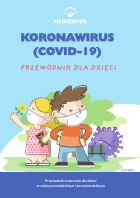



How many doses of the vaccine are needed to develop immunity?
Two doses are required for both the Pfizer, Moderna and Vaxzevria AstraZeneca vaccines to achieve full vaccine immunity. One dose of the vaccine is sufficient for the Janssen COVID‑19 vaccine. For Moderna COVID‑19 vaccine, the second dose is given up to 42 days after the first dose of the vaccine. With Vaxzevria AstraZeneca, the second dose is given up to 84 days after the first dose of the vaccine. For Janssen COVID‑19 vaccine, only one dose of the vaccine is needed.
After each vaccination, your body needs time to acquire immunity. COVID‑19 vaccines listed above may not provide protection until a week (Comirnaty), or at least two weeks (Moderna COVID‑19 vaccine) or at least 15 days (AstraZeneca COVID‑19 vaccine) after the second dose. However, the Janssen COVID‑19 vaccine may not provide full protection for approximately 14 days after the injection.
When is immunity developed after vaccination?
The vaccine may not provide full protection until at least 7 days after receiving the second dose in the case of Comirnaty, at least 14 days in the case of COVID‑19 Vaccine Moderna and at least 15 days in the case of COVID‑19 Vaccine, for Vaxzevria AstraZeneca – at least 15 days, and for Janssen COVID‑19 vaccine – approximately 14 days.
After 7 days from receiving the second dose of the vaccine, the efficacy of Comirnaty was 95%. The efficacy was independent of age, gender, race, ethnic group, obesity and other comorbidities. Between the first and second dose, the vaccine efficacy was 52%. In the case of COVID‑19 Vaccine Moderna, the efficacy in terms of prevention of COVID‑19 within 14 days after the second dose was 94.1%. In the case of Vaxzevria by AstraZeneca, partial protection is provided approximately 3 weeks after the first dose and is maintained for up to 12 weeks. The efficacy of the vaccine in reducing disease incidence was estimated to be approximately 67% for Janssen COVID‑19 vaccine.
Currently available vaccines may not provide protection to all vaccinated persons. The duration of protection provided by the vaccines is unknown as this is still being determined in ongoing clinical trials.
Can the individuals who recovered from COVID‑19 be vaccinated against this disease?
The vaccine can be safely given to people who have had COVID‑19 (according to the United States Centers for Disease Control and Prevention – CDC).
Since reinfection within 90 days after the infection is rare, vaccination may be delayed even by 90 days.
Vaccination of people who currently have the SARS‑CoV‑2 infection should be delayed. It can be given at least four weeks after symptoms have disappeared or four weeks after the first positive PCR or antigen test result in asymptomatic individuals.
I have been vaccinated. Can I ‘infect’ other people and transmit the virus?
Vaccination provides protection against the disease, but does not prevent transmission of the virus and infecting people who have not been vaccinated. A clinical trial looked at the effect of vaccination in preventing symptomatic COVID‑19, but not SARS‑CoV‑2 infection. A vaccinated person may become infected after contact with an infected person and, although the disease will not develop, may infect other people. It is not yet known whether vaccines also protect against the spread of the virus.
Should vaccinated people still wear masks?
Experts recommend that vaccinated people continue to cover their mouth and nose (in public places according to administrative recommendations. They should keep the recommended distance, avoid gatherings and frequently wash or disinfect their hands. Vaccination provides protection against the disease, but does not prevent transmission of the virus and infecting people who have not been vaccinated. It is not yet known how vaccines will affect the containment of SARS‑CoV‑2 infections. All available measures to contain the pandemic should therefore be used. For guidelines to be followed by those who have been vaccinated, visit the government websites.
Who should get vaccinated against COVID‑19?
According to the COVID‑19 National Immunization Program, anyone over the age of 16 who is willing to vaccinate and does not have any contraindications. From May 17th, all teenagers who are over 16 can register for vaccinations, and from June 7th – all children aged 12‑15.
What are the contraindications to vaccination?
An absolute contraindication to vaccination is hypersensitivity to the active substance or to any of the excipients. People who have experienced anaphylaxis after the first dose of COVID‑19 vaccine or a severe allergic reaction to the active substance or any other excipient of the vaccine cannot have the vaccine. Before vaccination, tell your doctor if you have ever had a severe allergic reaction to medicines, vaccines or food.
Due to limited data, giving the vaccine in the following groups is subject to individual patient decision and physician opinion:
• pregnant women and women planning to get pregnant – limited data, therefore vaccination should only be considered if potential benefits outweigh risks to the mother and foetus, e.g. in women at risk of SARS‑CoV‑2 infection (e.g. active medical personnel) or severe COVID‑19 (e.g. obese and with diabetes);
• breastfeeding women – it is not known whether the vaccine is passed into breast milk. There is no need to discontinue breastfeeding or not to start breastfeeding by women who have received COVID‑19 vaccine.
Temporary contraindications to vaccination include the following:
• being infected with SARS‑CoV‑2 or having been recently infected with SARS‑CoV‑2 (until recovery). This is to avoid situations where a new symptom or progression of symptoms is misattributed to being caused by the vaccine. As some people with COVID‑19 may deteriorate up to 2 weeks after infection, ideally vaccination should be delayed until recovery and at least four weeks after the onset of symptoms or four weeks after the first positive PCR or antigen test result in asymptomatic individuals;
• an acute severe illness with fever or acute infection – until symptoms of the infection disappear;
• exacerbation of a chronic disease – until the patient’s condition becomes stable.





